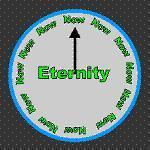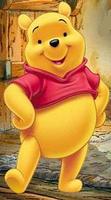Our everyday world of classical physics makes sense. If we drop a pebble in a pond it causes waves and sinks to the bottom. At the quantum level the pebble itself would not only initiate the action, but would become a wave. What happens at the borderland between classical physics and quantum physics? Why can we not connect the two in our understanding? On the one hand, we have a ball going where we toss it. On the other, we have balls "tossing" everywhere at once at the quantum level. Is something missing in the way we think?
AddThis
1/23/04
Borderland: The Last Frontier of Science
Our everyday world of classical physics makes sense. If we drop a pebble in a pond it causes waves and sinks to the bottom. At the quantum level the pebble itself would not only initiate the action, but would become a wave. What happens at the borderland between classical physics and quantum physics? Why can we not connect the two in our understanding? On the one hand, we have a ball going where we toss it. On the other, we have balls "tossing" everywhere at once at the quantum level. Is something missing in the way we think?
1/17/04
The Metaphysics of Grammar

I am these words you read. Or, if you want, these words are you. They radiate from this screen, involving you in their shapes, in their meanings, in the very mystery that they can communicate at all. We don't know one another and will never meet. Yet you read these words, each of them composed of letters, which shape representations. Representations of what?
Ah, there's the rub. Of what?
1/11/04
John Archibald Wheeler, Delayed Choice, & Time

If you aren't confused by quantum physics, you really haven't understood it. (Neils Bohr)
To explain very puzzling quantum phenomena Neils Bohr and Werner Heisenberg provided our world with the 1927 Copenhagen Interpretation of the double slit experiment (see Schrödinger's Cat, 2 January). The Interpretation still stands. It regards as meaningless questions like, Where was the particle before I measured its position?
1/9/04
Home______Two Sages & a Taoist
 Excerpts from a couple of What Is Enlightenment magazine interviews*, one with sage Ramesh Balsekar, the other with sage Swami Dayananda.
Excerpts from a couple of What Is Enlightenment magazine interviews*, one with sage Ramesh Balsekar, the other with sage Swami Dayananda.
Ramesh Balsekar interview:
Q: [To Balsekar regarding his assertion that he and all of us are fated, not determined, and have no choices in what we do.**] On the other hand, though, if one believed that one does have control over [his action] as opposed to believing that one doesn't, one might not have done it in the first place!
Ramesh Balsekar interview:
Q: [To Balsekar regarding his assertion that he and all of us are fated, not determined, and have no choices in what we do.**] On the other hand, though, if one believed that one does have control over [his action] as opposed to believing that one doesn't, one might not have done it in the first place!
1/8/04
Home______Daniel Dennett & Choice Machines
In his book Freedom Evolves, Daniel Dennett says we have more freedom if determinism is true. A determined world has less randomness, less unpredictability. It allows us to make informed judgements on reliably future events.
1/1/04

Home______Winnie The Pooh on Free Will
"If I hadn’t spent so much time studying Earthlings,” said the Tralfamadorian, “I wouldn’t have any idea what was meant by free will. I’ve visited thirty-one inhabited planets in the universe, and I have studied reports on one hundred more. Only on Earth is there any talk of free will.” (Kurt Vonnegut, Slaughterhouse–Five)
"There's a very large question here." (Winnie The Pooh)
Home
Subscribe to:
Posts (Atom)
